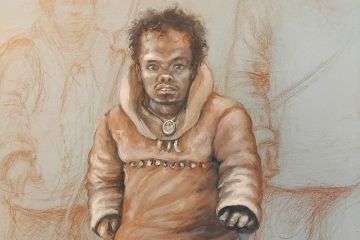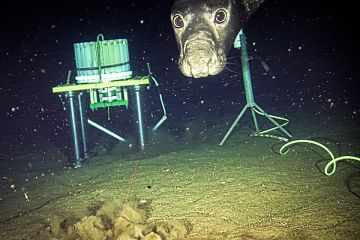Research Takes Ethical Approach to Fish Wars
While the rhetoric of Canada's fish wars sometimes takes on the overtones of a crusade, spiritual values are rarely given serious consideration in developing solutions to the fisheries crisis--until now. UVic's Centre for Studies in Religion and Society (CSRS) is one of three Canadian centres sharing a three-year research project into the role of ethics in decision-making around the country's fish stocks.
And while the bulk of the funding, $96,000, comes from the Social Sciences and Humanities Research Council (SSHRC), $35,000 has also been contributed by Canada's churches.
"In the past we've depended on science for guidance and that hasn't worked because science has a built-in uncertainty," says Dr. Harold Coward, director of CSRS. "We're proposing that rather than making decisions based on the pressure of lobby groups, politicians make decisions that appeal to the ethical sensibilities of their electorate."
The research team has representatives from both of Canada's coasts. It will examine how fisheries decisions affect communities and the people who live there. The project's three bases also reflect the multi-disciplinary influences the humanities (CSRS), the social sciences (the Institute of Social and Economic Research at Memorial University in Newfoundland), and fisheries biology (the Fisheries Centre at UBC) will have on the team's analysis.
Team members include representatives of fishing communities, the sports and commercial fisheries and fish biologists. Once results are published, workshops with policy makers will be held on both coasts. Researchers met earlier this month at Dunsmuir Lodge in Sidney, B.C. and will hold a follow-up meeting at Memorial University. A final meeting of the team will be held next year in Haida Gwaii (Queen Charlotte Islands) for an intensive critique of the work conducted over the previous year.
"It's the best fisheries science and the best social science working with small communities and ethicists to study the ethics in fisheries policies and make policy recommendations," says Coward. "There are also members from Aboriginal communities because they have demonstrated values that achieve balance between the fish stocks and their communities."
At the conclusion of their project, researchers will publish a book and brochure of their findings and recommendations for use in follow-up workshops and to ensure their results are communicated to policy decision-makers.
-- 30 --
Media contacts
Dr. Harold Coward (Centre for Studies in Religion and Society) at (250) 721-6325




